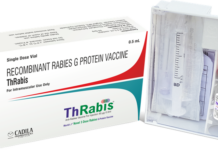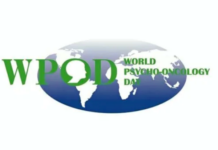From farm to plate, make food safe
New Delhi, April 01, 2015: An estimated 700 000 children die of diarrhoea in WHO’s
South-East Asia Region every year. Unsafe food and water cause a range of diseases, deaths and impact the wellbeing of individuals as well as nations. On World Health Day, the World Health Organization calls upon nations, policy makers, farmers, food handlers, families and individuals to make food safety a priority.
“Bacteria, viruses, parasites, chemicals, and other contaminants in our food can cause over 200 diseases ranging from diarrhoea to cancer. New and emerging threats such as climate change and its impact on food production; emerging biological and environmental contamination, new technologies, new foodborne infections and diseases; and antimicrobial resistance through the food chain – all pose challenges to the safety of our food” said Dr Poonam Khetrapal Singh, Regional Director, WHO South-East Asia. “These existing and emerging threats call for urgent action. Countries must put in place comprehensive food safety policies matched by legislation and robust food safety strategies. And they must be stringently implemented across the food chain. This requires a trained workforce and an informed and empowered consumer” she added.
The food safety policies need to be multisectoral since food passes through multiple hands to reach our plates. The approach needs to be preventive – to improve food safety and quality through application of good farming practices by using agro-chemicals or veterinary drugs only as prescribed. Good storage, transportation, retail and restaurant practices must be implemented to make food safe.
Food safety today also covers issues such as genetically modified foods. Food is supplemented with Micronutrients and vitamins. Food safety should be a part of food security and nutrition programme in countries.
An additional dimension to food safety is that the food chain now extends over thousands of kilometres, crossing many national borders, and contains many steps from production to consumption. An error by a food producer in one country can affect the health of consumers on the other side of the world. The globalization of food trade has been linked to outbreak of foodborne illnesses, trade disputes and food recalls.
Food safety is one of the key focus areas under the International Health Regulations – IHR 2005 – which includes events of all public health emergencies of international concern that involve contaminated food and outbreaks of foodborne diseases. WHO and the United Nations Food and Agriculture Organization (FAO) have established the International Food Safety Authorities Network (INFOSAN) to rapidly share information during food safety emergencies.
WHO supports countries to prevent, detect and respond to foodborne disease outbreaks using the Codex Alimentarius, a collection of international food standards, guidelines and codes of practice. Codex provisions concern the hygienic and nutritional quality of food, including microbiological norms, food additives, pesticide and veterinary drug residues, contaminants, labelling and presentation, and methods of sampling and risk analysis; covering all the main foods and processes.
Food safety is a critical public health function for the governments, and a shared responsibility.
World Health Day is celebrated on 7 April every year to mark the anniversary of the founding of WHO in 1948. Each year a theme is selected that highlights a priority area of public health. The Day provides an opportunity for individuals in every community to get involved in activities that can lead to better health. WHO is focussing global attention on food safety on World Health Day 2015 to make food safe from farm to plate.
CCI Newswire
























